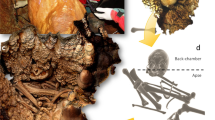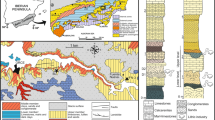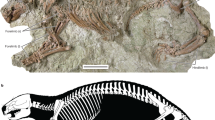Abstract
IN NATURE of Feb. 27, p. 312, Messrs. Forster Cooper and Watson set out the reasons by which they are “forced to the conclusion that the Oldoway man reached the position in which he was found by an artificial and probably a relatively recent burial”. Among the reasons which they adduce for this conclusion is the fact that the “skeleton, which is of modern type, with filed teeth, was found completely articulated down even to the phalanges, and in a position of extraordinary contraction”. As field palæontologists, they regard the possibility ofa skeleton getting into the deposits in such a state by natural means as so unlikely, that they find it hard to believe that the skeleton was contemporary with the deposits hi which it lay.
This is a preview of subscription content, access via your institution
Access options
Subscribe to this journal
Receive 51 print issues and online access
$199.00 per year
only $3.90 per issue
Buy this article
- Purchase on Springer Link
- Instant access to full article PDF
Prices may be subject to local taxes which are calculated during checkout
Similar content being viewed by others
Author information
Authors and Affiliations
Rights and permissions
About this article
Cite this article
LEAKEY, L. The Oldoway Human Skeleton. Nature 129, 721–722 (1932). https://doi.org/10.1038/129721b0
Issue Date:
DOI: https://doi.org/10.1038/129721b0
This article is cited by
-
The crystalline quartz-rich raw material from Olduvai Gorge (Tanzania): why is it called quartzite when it should be called quartz?
Archaeological and Anthropological Sciences (2023)
-
The geological context of the Kanapoi fossil hominids
Human Evolution (2001)
Comments
By submitting a comment you agree to abide by our Terms and Community Guidelines. If you find something abusive or that does not comply with our terms or guidelines please flag it as inappropriate.



